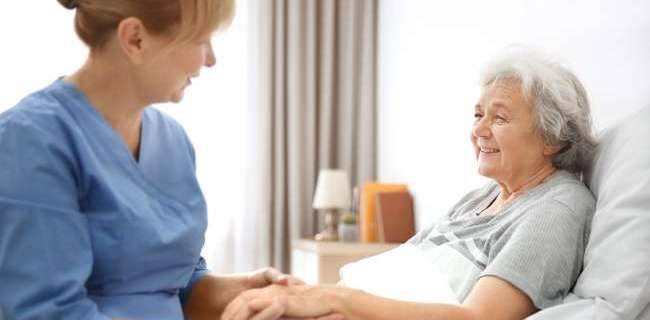
pic: senioradvice.com
In another ripple in the wake of Covid, several municipalities have petitioned the government to be able to deny summer residents (people moving to the summer houses for the summer months, for example) the home services they’re granted in their home municipalities. Many parliamentarians understood and agreed with the municipalities, and on the 3rd of June a majority said that the government must temporarily change the law and allow municipalities to deny services. But yesterday, the government said no, the municipalities must provide these services by law. This has caused consternation and anger on the part of these municipalities. Some have now said they’re ready to go their own way and ignore the law.
Home services cover a lot of things. Municipal employees are sent out to homes to help elderly, sick and/or injured with things like cleaning, shopping, getting dressed, taking a shower, making the bed, cooking food, accompaniment on shopping rounds or just helping with a walk, and more. What clients can get help with depends on their needs – there isn’t a ready-made list. Furthermore, different municipalities can grant different help: One municipality can say that a client can get help with their shopping four days a week while another might say something different. One municipality can grant 10 hours of help a week without being any more specific about what tasks the person is to get help with. It’s not free – there’s a price list for each activity and the prices can vary per place. However, it’s subsidized, and the monthly maximum price, for the user, is currently just over 2000 SEK.
This is not the real cost of the services though, and the municipalities say they can’t afford it. When people who normally receive services in their home municipality move for the summer, the summer municipality takes over the responsibility for them, including the manpower and the cost.
Lena Hallengren, Minister for Health and Social Affairs, explained the no by saying changing the law was just too complicated a thing to accomplish in a short time: It can’t be done in a wave of the hand, but needs a thorough inquiry and an impact analysis (DN.se).
Not good enough, say several municipalities. “We’re going to continue saying no” said Orust town councilor Catherina Bråkenhielm, DN reports. “We’re holding the line and denying home services for the time being” said town councilor Mats Abrahamsson.
Not even the Swedish Association of Local Authorities and Regions (SKR) is happy with the government: The muncipalities “don’t want to say no to summer guests, but they don’t have the staffing. They’re also worried about a higher local infection rate now when the government has lightened up on restrictions,” noted Gregor Bengtsson, coordinator for elderly care at SKR. There are about 60 who are saying no, Bengtsson says.
The consequences of the municipalities’ actions are at this moment still unclear. Bengtsson says the they might be investigated by the Swedish Health and Social Care Inspectorate (Inspectionen för vård och omsorg, IVO) and that some have been reported to the Office of the Parliamentary Ombudsman (justitieombudsmannen, JO). More immediate effects, though, are going to be felt by the elderly or ill, who have been granted assistance in their home area, and who are asking for it – as allowed by law – also when they enjoy the summer away from home as well.

